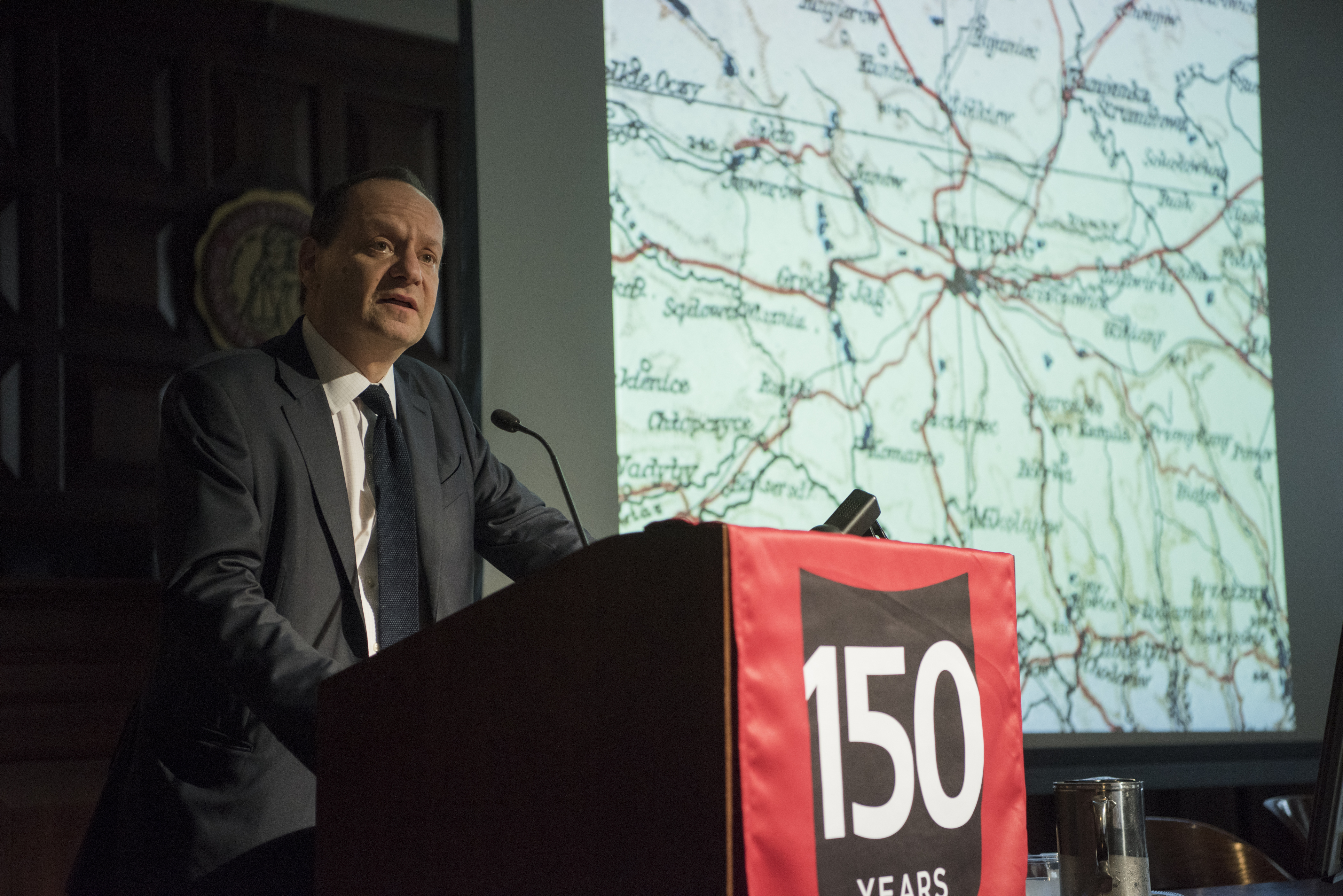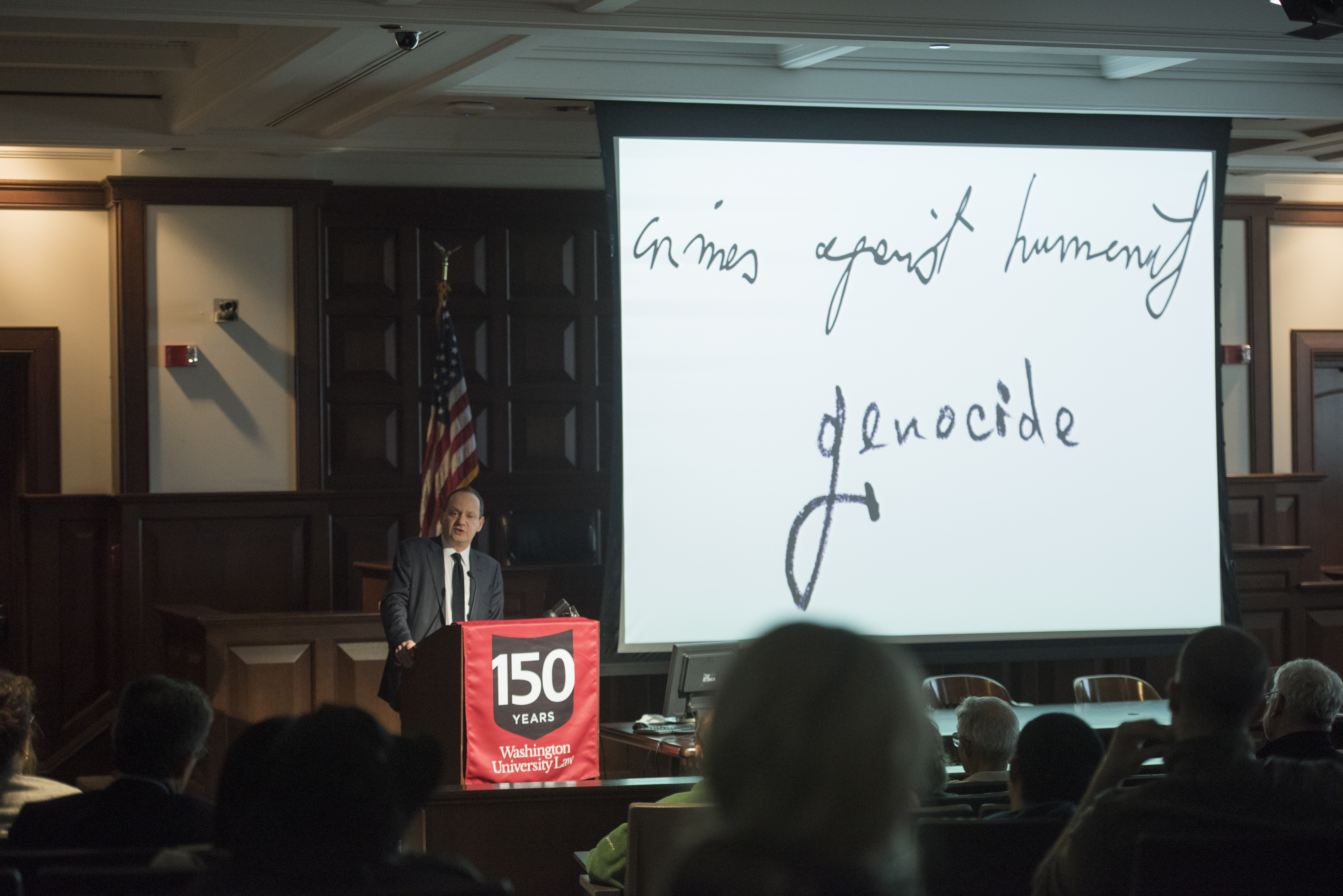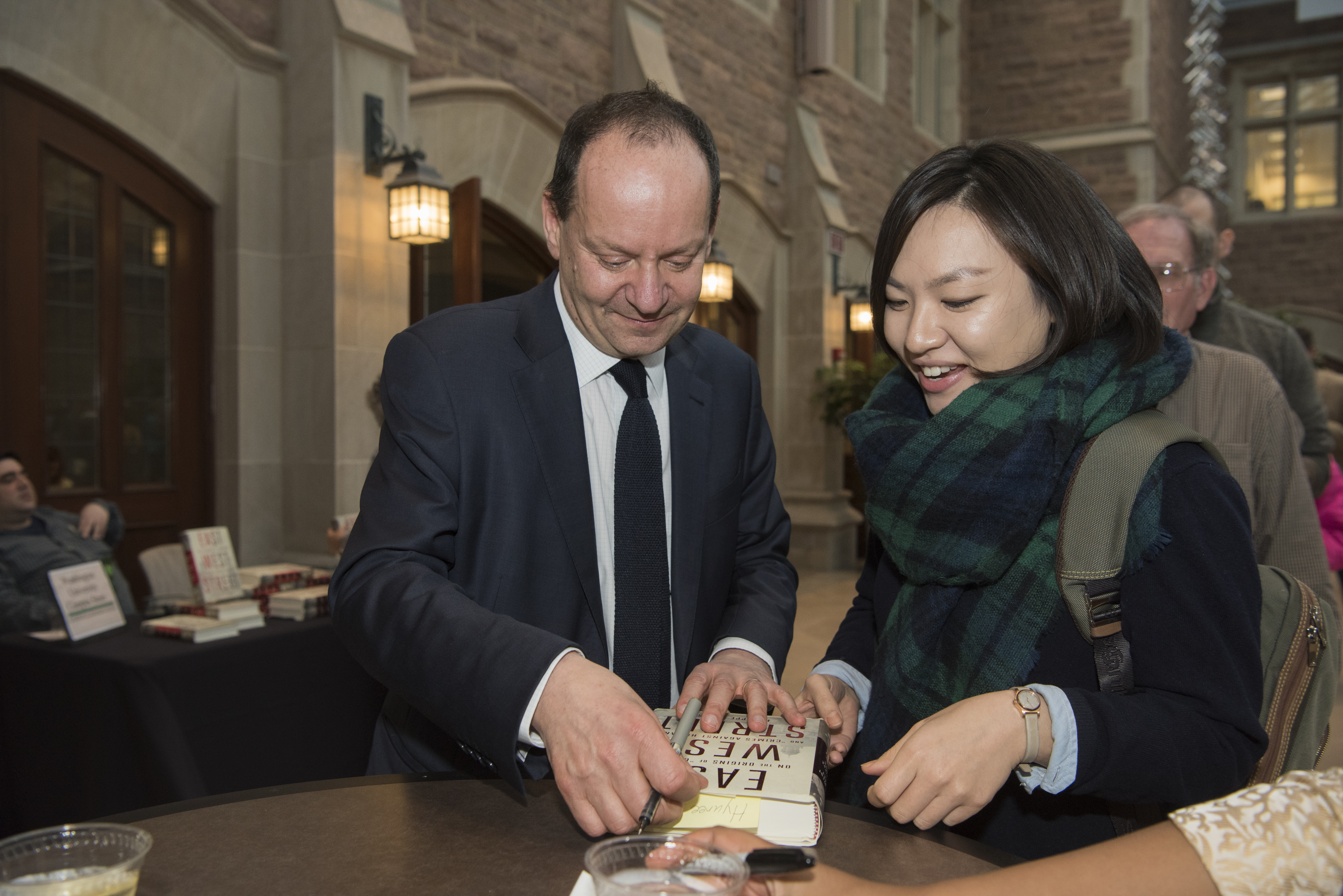By: Megan Reif

Sands shows a map of Lemberg (also known as Lviv, Lvov, and Lwów), the now-Ukrainian city at the center of East West Street [Photo by Mary Butkus/WUSTL Photographic Services]
On Thursday, March 30th, Washington University School of Law and the Whitney R. Harris World Law Institute welcomed Philippe Sands to campus as part of the Assembly Series and Public Interest Law and Policy Speaker Series. Prof. Sands gave a special presentation of the stories chronicled in his recent book, East West Street: On the Origins of “Genocide” and “Crimes Against Humanity.” Some years ago, Prof. Sands was invited to give a lecture in the Ukrainian city formerly known as Lemberg about the legacy of the Nuremberg trials. Upon receiving this invitation, Prof. Sands embarked on a personal journey of research and discovery that led him to startling revelations about his own family history in Lemberg. The book is part detective novel and part historical narrative, as readers follow Prof. Sands’s own nowjourney through public and personal archives, through his family’s photos and letters, and through interviews of people who actually witnessed the horrors of World War II and the attempt at accountability that followed them through the Nuremberg trials. Deciphering arcane German script and matching photographs without names or dates, he discovered many stories, including the startling heroism of a nun who brought his own mother to safety in Paris, along with the terrible fates of nearly eighty of his closest relations who remained in Lemberg.

Handwritten notes by Hersch Lauterpacht and Raphael Lemkin reveal the creation of two crimes that are now essential to international law [Photo by Mary Butkus/WUSTL Photographic Services]
Prof. Sands’s marvelous book, and the lecture he presented at Washington University, trace the stories of four men who were all connected through Lemberg: Hersch Lauterpacht and Raphael Lemkin, two lawyers who contributed to Nazi prosecutions at Nuremberg (and thus the development of modern international criminal law), a Nuremberg defendant (Hans Frank) who oversaw the region during Nazi occupation, and Prof. Sands’s own grandfather, Leon Buchholz. As he unraveled the intersecting lives of these four men during World War II, Sands humanized the men themselves, and explored some of their motivations and coping mechanisms through archival and personal photos, video footage, handwritten notes, and music. His lecture at Washington University focused particularly on the lives of Hersch Lauterpacht, the legal mind behind “crimes against humanity,” and Raphael Lemkin, the originator of the concept of “genocide,” who both studied law in Lemberg but never met. Their contemporaneous legal educations yielded hugely different results, however, for while Lauterpacht insisted on conceptualizing atrocity crimes as crimes against the individual, Lemkin was driven by a need to recognize group identity, therefore crimes against members of the group based on that identity. Those different conceptualizations are reflected in the definitions of the crimes themselves, with crimes against humanity criminalizing acts against individual civilians when committed as part of a widespread and systematic attack, and genocide criminalizing acts committed with the intent to destroy a national, ethical, racial or religious group (in whole or in part). Nevertheless, the work of these two men would come to define international criminal law as we know it today—individuals were found criminally responsible for crimes against humanity at Nuremberg, and crimes against humanity and genocide are both used to prosecute perpetrators of atrocities in modern international criminal tribunals, including the International Criminal Court.

Philippe Sands signs a copy of East West Street for JD/LLM student Hyuree Kim [Photo by Mary Butkus/WUSTL Photographic Services]
Prof. Sands’s lecture closed with reflections on the current utilization of both crimes against humanity and genocide in the international legal regime, with special recognition of the work that Washington University School of Law is doing (through the Harris Institute’s Crimes Against Humanity Initiative) to create an international convention on crimes against humanity that fills the impunity gap left after the Genocide Convention and the Rome Statute. The upcoming symposium issue of the Global Studies Law Review will center on that very topic, and incorporate Prof. Sands’s remarks as the keynote address. In addition to East West Street, Prof. Sands provides a deeper look into these stories in the documentary inspired by his research, What Our Fathers Did: A Nazi Legacy.
Prof. Sands’s presentation can be viewed in full here:
https://lecturecapture.wustl.edu/mediasite/Play/fd648d7afddd42f0b020e6b04fd4ff511d
